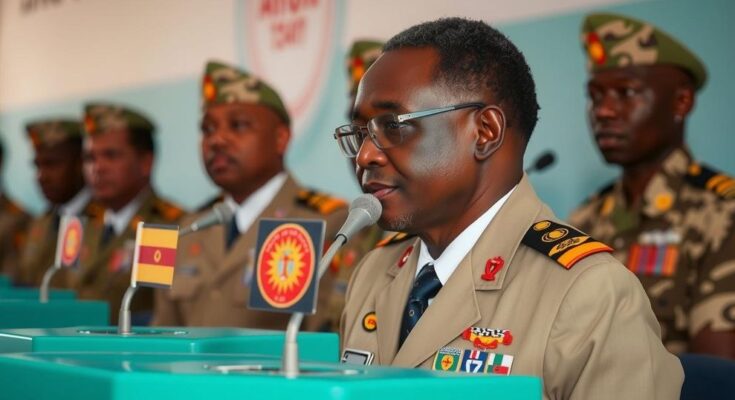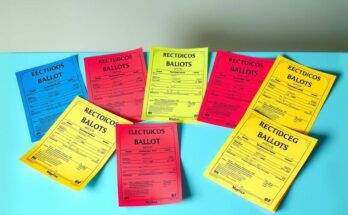Chad votes in legislative, provincial, and local elections after three years of military rule. The opposition is boycotting the elections, citing electoral fraud. The ruling government claims the elections are vital for transitioning to democracy, while the atmosphere remains tense due to security threats and political dissent.
Chad’s electorate is set to partake in legislative, provincial, and local elections, following three years of military governance. Opposition parties have chosen to boycott these elections, asserting that the previous presidential election was marred by electoral fraud. This absence of opposition candidates may favor those aligned with Marshal Mahamat Idriss Itno, who assumed control in 2021 after his father’s death and subsequently faced a disputed election last May.
In the lead-up to the voting event, opposition leader Succes Masra articulated concerns on social media, arguing, “It is better to stay at home,” in reference to the alleged manipulations within the electoral process. The Democratic Party of the Chadian People has further raised alarm over purported electoral fraud, citing claims of missing ballots in the Bongor region.
The polls will be accessible to approximately eight million registered voters, monitored by foreign observers and various political party representatives. Additionally, security challenges persist, with ongoing threats from Boko Haram, alongside geopolitical tensions due to Chad’s involvement in regional conflicts.
Itno’s government presents these elections as a critical juncture in transitioning to democracy, having previously established a transition parliament in 2021. However, dissenting voices highlight the growing autocratic tendencies of the regime. The circumstances surrounding the election are exacerbated by a strike among online journalists disrupting media coverage and a lack of financial support for private press outlets on this significant day, leaving voters with limited access to information.
Overall, Chad’s elections unfold under a climate of skepticism and political strife, marking another chapter in a challenging quest for democratic governance in the country.
Chad has been under military rule since 2021, following the death of long-time leader Idriss Deby Itno. His son, Mahamat Idriss Itno, has maintained control amidst accusations of electoral fraud and increasing authoritarianism. The opposition has raised concerns about the legitimacy of the electoral process, leading to a boycott of the current elections. This situation highlights the struggle for democratic governance in a nation facing various security threats and political instability, including famine, economic difficulties, and conflicts with neighboring regions. Previous elections were marred by delays attributed to external threats and health crises, leaving a significant gap in Chad’s democratic processes and parliamentary representation.
The elections in Chad, occurring after three years of military rule, underscore the ongoing political challenges and the opposition’s refusal to participate due to concerns over electoral integrity. While the government touts these elections as a step toward democratic transition, the lack of opposition representation and allegations of fraud raise serious questions about the future of governance in Chad. This situation, coupled with ongoing security threats, underscores the need for greater political accountability and the establishment of a truly democratic system.
Original Source: www.france24.com




